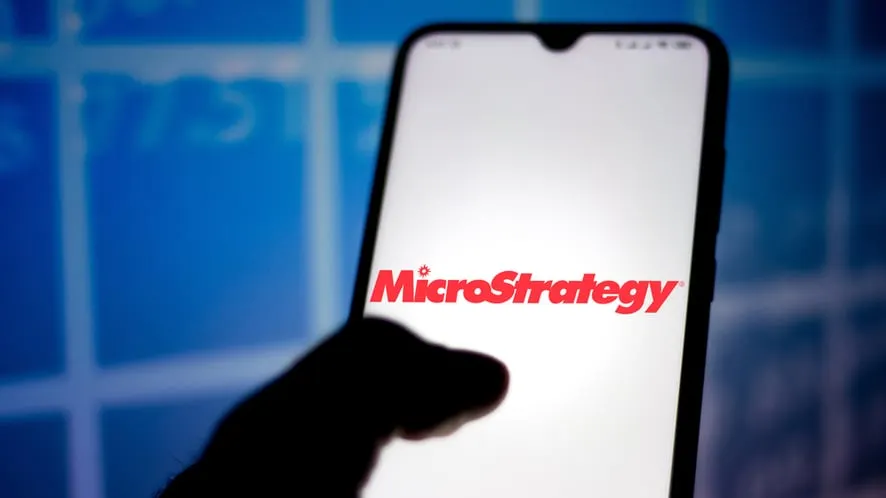During a presentation at the annual MicroStrategy World conference in Las Vegas, MicroStrategy co-founder and Executive Chairman Michael Saylor unveiled the open-source MicroStrategy Orange Decentralized Identity protocol.
“Michael presented a very compelling case for why we need decentralized identity and did decentralized identifiers,” MicroStrategy executive vice president of engineering Cezary Raczko told the audience. “He made an even more compelling case why it makes sense to anchor digital identity into the Bitcoin blockchain, protected by the strength and the security of the Bitcoin network.”
Alongside the announcement, MicroStrategy published an unofficial draft of the MicroStrategy Orange specification to Github.
While the timing of the news was unexpected, Saylor previously hinted that his company was working in the identity and authentication space. He told Decrypt last year that MicroStrategy was more than aware of Ordinals after the protocol launched in January, and interested in exploring how it could inspire software innovations.
“The whole idea of burning a piece of data on the blockchain opens the door to the possibility that I might burn a digital signature, or I might burn a registration, or I might burn a hash of a document,” Saylor said. “Right now, enterprises have weak security compared to Bitcoin.”
The Bitcoin advocate said that innovations using the world's largest cryptocurrency could introduce an entirely new level of security.
“The platform consists of three fundamental pieces, Raczko said late Wednesday.
“At the heart of it is a service cloud, hosted, that allows you to issue those identifiers to your users in your organization,” he explained. “It also allows you to deploy prepackaged out-of-the-box applications that run on the MicroStrategy Orange platform.”
Raczko said the Orange software development kit will make it easy for coders to take these capabilities and integrate them into their own applications and systems.
Using email as an example, Raczko said Bitcoin-based public and private keys generated using MicroStrategy Orange would be inscribed using the Ordinals protocol.
According to the MicroStrategy Orange documentation, the decentralized identity protocol uses a modified approach to inscriptions as Ordinals, but stores only data related to decentralized identity (DID), meaning documents can be created and updated with few restrictions on size and content while taking advantage of the segregated witness (SegWit) feature of Bitcoin.
“Once you've established that that email is genuine, you accept the invitation, and at that point, we're going to generate your unique decentralized identifier, and the public and private key pair,” Raczko explained. “We're going to send a decentralized identifier and the public key to the Orange server to be inscribed on the Bitcoin Blockchain, [and] from that point onward, you are ready to start sending Orange-signed or emails.”
BREAKING: LASER-EYE MAXIS IN ABSOLUTE SHAMBLES AS THEIR LORD AND SAVIOR @SAYLOR ANNOUNCES NEW “PROTOCOL” TO INSCRIBE DIGITAL IDENTITY DOCUMENTS ON THE BITCOIN BLOCKCHAIN
INSTITUTIONAL-GRADE SPAM HAS ENTERED THE CHAT pic.twitter.com/EMGsZBcZvw
— Udi | BIP-420 🐱 (@udiWertheimer) May 1, 2024
“[The] opportunity we see and want to pursue is integrating the digital identity based on Bitcoin with this bigger, verifiable credential ecosystem which opens up another large number of very interesting use cases where I can now credential my identity anchored to Bitcoin,” Raczko said.
He added that the MicroStrategy Orange decentralized identifier could also be used to verify users on social media applications or authenticate a text message, college degree or medical record.
“Present those and then have those verified all in a decentralized way, but with the ultimate identity living and being anchored to the Bitcoin blockchain,” Raczko added—suggesting that Orange could make it possible to display an “orange check” for verified users across platforms.
Edited by Ryan Ozawa.

